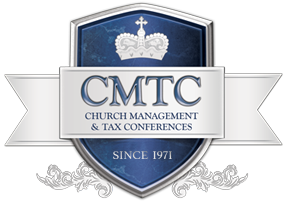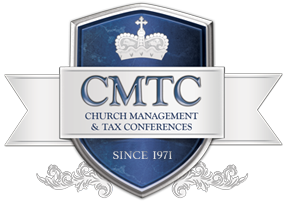Why A Pastor Should Not Have A Discretionary Fund
As I travel the nation teaching Church Management and Tax Conferences I discover many Pastors who maintain a Pastor’s Discretionary Fund. I realize the motive behind this fund and that those Pastors want the freedom to help those in need, who cross their paths. However, this thing that may seem like a blessing may in fact end up as a curse to the Pastor and his or her Church.
How A Discretionary Fund May Be A Blessing
Pastors travel across a broad spectrum of society. Whether it is visiting hospitals, families in crisis, prisons, or just enjoying lunch in a restaurant, they constantly cross paths with people in need. This provides tremendous opportunities to demonstrate the love of Christ and the compassion of His people by offering benevolence assistance to those less fortunate.
However, every need does not necessarily qualify as a legitimate benevolence. You cannot give Church funds for any reason which others or the Pastor may consider as a need. Church funds are tax-exempt monies and should only be utilized in accordance with proper IRS codes.
What Constitutes Benevolence
You cannot use Church funds to fix the Deacon’s son’s automobile so he can get to work in order to keep him from violating probation. You cannot use Church money to bail a Church member’s son or daughter out of jail. You should not be using Church money to pay someone’s rent or mortgage payment. These are just a few of the reasons some Churches provide benevolence. However, there are only five items a Church should consider for benevolence assistance. They are:
- Emergency Food
- Emergency Clothing
- Medical Emergencies
- Emergency Utilities
- Emergency Housing
When a Pastor uses a Discretionary Fund, he or she does not take the proper steps to determine that the need is legitimate. Just because someone requests medical emergency assistance does not mean they will use the money for that purpose, or that they have a real medical need.
Another problem is the abuse of benevolence by the general population. According to some statistics, 92% of people requesting benevolence are using Churches to fund their lifestyles. Many of these individuals do not work or work very little. They have a circuit of Churches they target each week.
Problems with Discretionary Fund
The Pastor will more than likely provide funds for reasons which are not legitimate. This could cause major problems for the Pastor and the Church.
Another problem is that when the Pastor has a Discretionary Fund, he or she will often use it for their own benefit, which violates Private Inurement regulations. Although sometimes they use it accidentally, according to some statistics, Pastors will use the fund to purchase their meals, put gas in their private automobile, and for countless other reasons. These purchases do not end up being reported in the Pastor’s annual income and therefore is not taxed. This may result in income tax evasion for the Pastor and create Private Inurement issues for the Church.
Eliminate the Discretionary Fund
The wise thing to do is eliminate any discretionary fund. If people need assistance, they should contact the Church, complete a detailed Ministry of Helps Request Form, and then allow a benevolence committee to review it. The benevolence committee should never vote on a request based on emotion, but from careful review of the request—they should check references and always vote from their head and not their heart.
How We Can Help
These and other pertinent topics are taught all across the USA at our Church Management and Tax Conferences. With 78 years of experience Chitwood and Chitwood is the number one firm in America for Church Management. We know what others are still trying to learn.
It would be in every Pastor and Church Leaders best interest to visit us at www.cmtc.org or call us at 800-344-0076 to register for the nearest Church Management and Tax Conference. Your procrastination may be your downfall.
Remember, for others this is a job, but for us “It Is A Ministry.”

